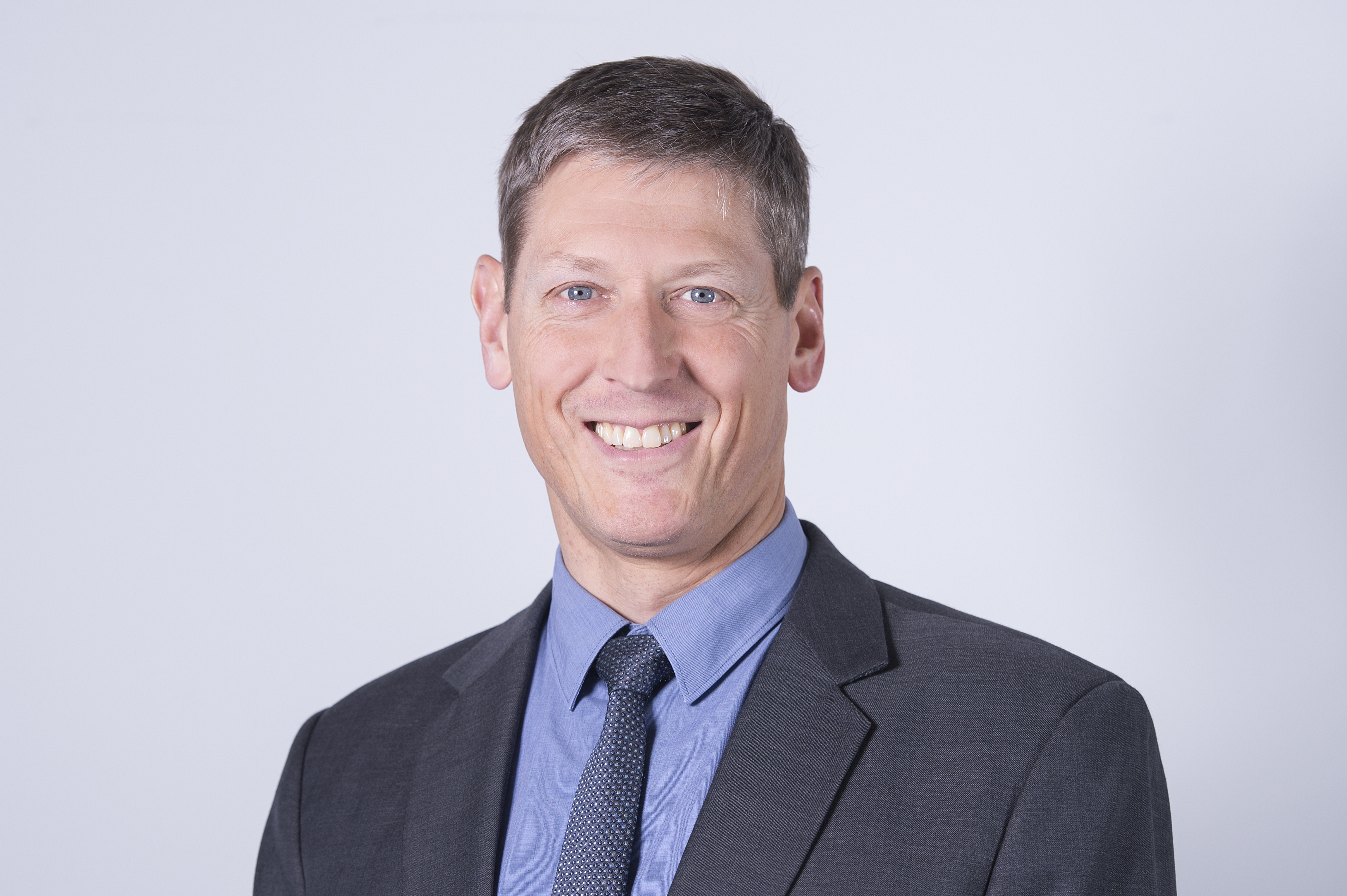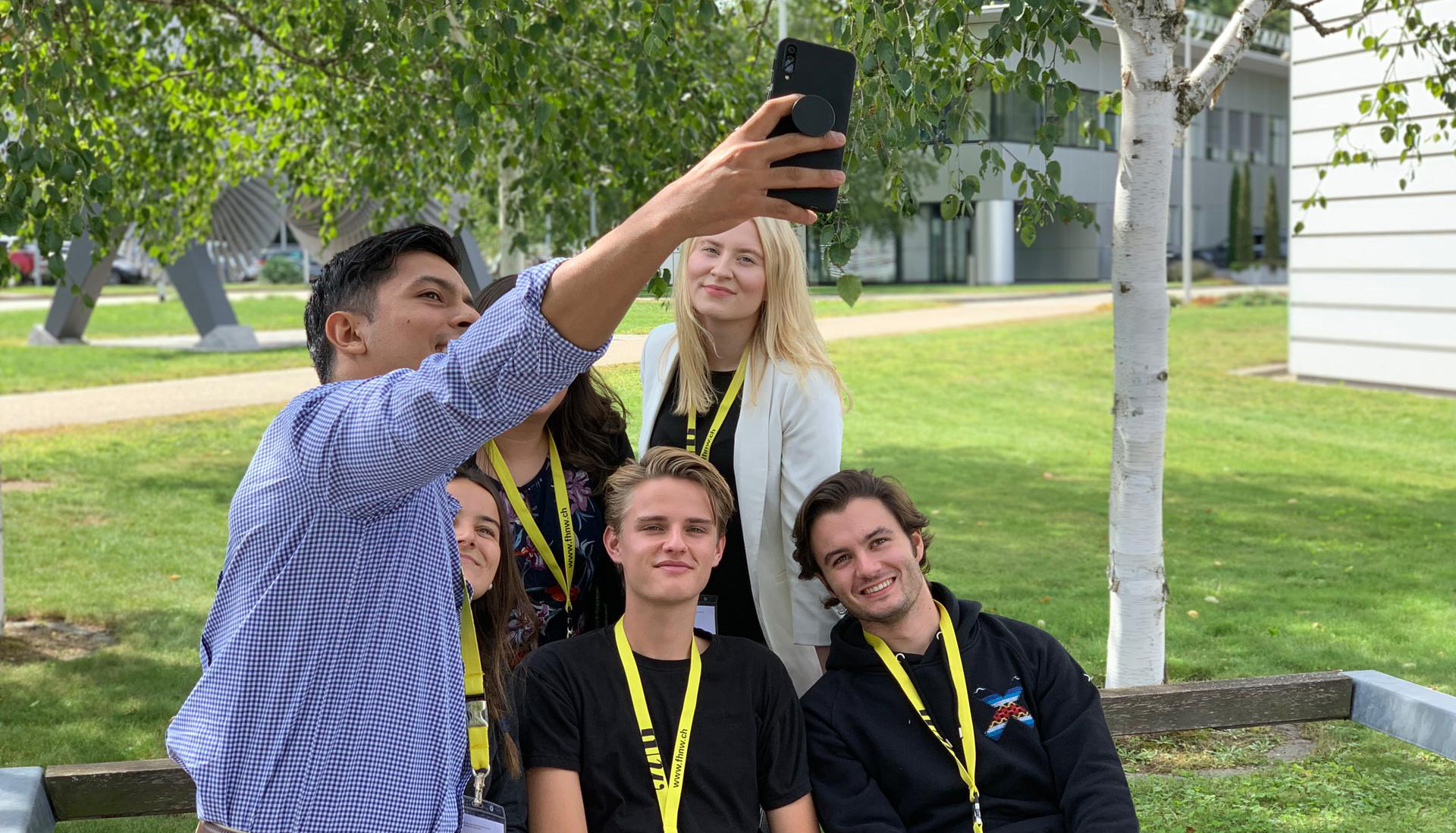"At the FHNW, the international work should be weighted more strongly".
Daniel Halter is FHNW Vice President for University Development and the new Head of the International Affairs Commission.
We talked to him about the importance of international relations at the FHNW, especially at the FHNW School of Business.
Daniel Halter, you are the new head of the International Affairs Commission at the FHNW. What educational background do you bring with you and what professional experience with a focus on international affairs have you had so far?
Daniel Halter: I studied cell biology at the ETH in Zurich and did my PhD in Cambridge, England. After working in research, I worked as a biology teacher and in school management functions. I lived in Thailand for five years and headed the Swiss School in Bangkok. Subsequently, I held management positions at the University of St. Gallen and the ETH Zurich - I also spent a lot of time traveling internationally: I spent several weeks a year at conferences and meetings abroad. And almost three years ago, I came to the FHNW as Vice President for University Development and am currently in charge of the FHNW for six months substituting for the President of the Board of Directors.
How is international work embedded within higher education development?
There are five working groups in the FHNW Directorate, of which three are departments - education, continuing education and research - and two commissions, namely quality assurance and international affairs. All nine schools are represented in these working groups. The departments are headed by directors and the two commissions by me as Vice President for University Development. The departments are dedicated to the core topics of the performance mandate. The commissions deal with topics outside our core mission and are therefore headed by the vice president.
What will your focus be in the International Affairs Commission?
At the FHNW, international should be weighted more strongly. For this, it is necessary that the discussion about the anchoring of our international work takes place at the nine schools. A first step towards this is updating the international policy of the FHNW.
International experience and intercultural skills are important assets in today's working world.
And in terms of students?
I would welcome every student gaining experience abroad during their studies. Mobility exchanges could also be of interest to our employees. Ideally, this is acquired by experiencing another country on site and immersing oneself in its culture. Internationality can also be enhanced by offering degree programs in another language. I imagine that the FHNW will offer more courses in English. Furthermore, I have in mind an "FHNW Language Centre" in which a bouquet of different languages is offered at a high level of quality. Some universities already have such offers and corresponding lecturers. Why not establish this as a fixed offer for all students and employees?
Does anything like this already exist at other universities?
Yes, many universities have their own language centres, including the University of Basel. But unlike compulsory courses in German or English, these additional languages would remain optional in in our undergraduate and continuing education programmes. If our students and employees choose them and combine them with short stays in the respective language area, it would be possible to obtain an additional language certificate in three or four semesters.
What are the considerations regarding student exchange?
We are in the process of revising the "International Welcome Week" in order to promote the integration and networking of incoming students. Under the leadership of the FHNW School of Business, a great programme is already being offered, which is in principle also open to students from all schools. However, it is mainly used by incoming students of the FHNW School of Business. With a jointly supported offer, the program should become even more attractive for all incoming students. We have many ideas. In addition to a Welcome Event, there could also be a Farewell Day and networking could be promoted even more. We are looking forward to it.
How will this affect outgoing students?
Better networking with incoming students could lead to a growing interest in going abroad. The personal contact with incoming students creates a great motivation to spend part of one's studies abroad.
Can these students be supported financially?
Since 1992, Switzerland has been promoting intra-European mobility for outgoing and incoming, since 2014 by means of the "Swiss European Mobility Programme" (SEMP). The programme supports the mobility projects of students and employees. Even after the vote on the framework agreement, SEMP is the guarantee that financial mobility support will continue despite Switzerland's non-association.
What are the rules for transferring credits earned at home or abroad to a student’s studies?
This varies depending on the course of study and on the credits gained at home and abroad. At some schools it is clear what is credited and what is not. Since the course assignments are usually selected individually, the credit is also clarified individually.
Switzerland is not a member of the EU and therefore does not have automatic access to EU mobility programmes. What advantages and disadvantages does this have for our students who want to go to the EU area or to countries outside the EU?
We are engaged in intensive exchange in the area of student mobility, and the "Swiss European Mobility Programme" is continuing as before. The situation is different in the research area, where exchange is limited. In the Horizon projects, for example, Swiss researchers can no longer take an official lead.
The FHNW directorate recently decided to continue investing funds to further promote incoming mobility worldwide. What does this mean in concrete terms?
This refers to the "FHNW Worldwide Grant", because previously only mobility in Europe could be supported with SEMP and this year only a small part of worldwide mobility started to be supported under SEMP. Additional benefits are integrated under SEMP, including in the area of sustainability: Those who travel by train instead of by plane are awarded additional contributions. Based on the SEMP guidelines, the individual schools of the FHNW can now award contributions.
Are there specific goals for FHNW School of Business in terms of how many students should go to which countries - or preferences?
There are no numerical requirements. But I would like the Latin American Centre with its focus on Colombia to be well received by FHNW School of Business students and to be frequently visited. With the China Centre, we are prominently positioned in the Asian region. The African continent is still a "blind spot" for us. It would certainly be welcome if FHNW School of Business students would also show a strong interest in mobility for this continent. Within the FHNW, the School of Business is the most internationally active school in terms of international collaboration and projects. It would be great if the commitment remains this high.
Finally, a question about AACSB accreditation: What is its significance with regard to internationalisation?
First of all, I would like to express my congratulations on this success! I think that the AACSB accreditation is an additional lever for the FHNW School of Business to become visible and distinguish itself on the international stage.
Daniel Halter, thank you very much for the interview.


